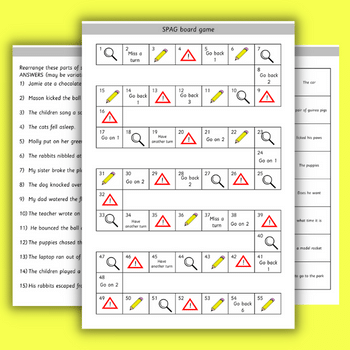8 ways to use your class novel to teach SPaG

Get extra oomph out of your next book with Aidan Severs’ vocab and grammar ideas

- by Aidan Severs
- Education consultant, writer, speaker and former deputy head Visit website

Host a book hunt, explore new words and their meanings and see how punctuation is used to dramatic effect.
These and loads more great ideas are lurking in these eight classroom activities to base around your current book.
1 | Book Hunt
Identify a type of word, spelling pattern or piece of punctuation then ask the children to find instances of it in a book of their choice.
For example, if the focus is hyphenated words, add to your working wall all the examples they find, ready to be used in the children’s own writing.
Challenge older pupils to find one example of each of the word classes.
2 | Missing Words
Copy an excerpt from your book and black out some of the words or punctuation marks, such as the adjectives, dashes or words with prefixes.
Children can then decide on what class of word is missing and make suggestions for suitable words to fill the blanks.
This encourages children to think about why the author included what has been blanked out, and what function the missing items perform.
3 | Vocab Match
If you’ve pitched your class novel correctly there will be lots of new, intriguing words for children to discover.
Spend some time learning what they mean. You could provide pictures for the children to match the words to, or definitions, or even sentences which have the word missing from them.
This is also a good opportunity to do some SATs-style ‘Which word is closest in meaning to…’ questions.
4 | Find and Use
Rather than just recording words or examples of punctuation usage, ask pupils to use what they have found as a model for their own writing.
At first, their sentences could be very similar to the ones they find. This simple activity means that children are more likely to use words and punctuation marks accurately.
Children will better remember a word that they have practised using already. Multiple exposures to any given word are a must, so asking children to find particular words more than once is important.
5 | Just Talk
This is probably the most effective technique of all, as it is the one that becomes a habit and can be done throughout the day.
As you read to the children, allow them to ask what words mean, discuss how they can be used and where they come from.
Point out examples of different word classes and identify how and why punctuation has been used. Comment on particular spelling rules as you read for enjoyment.
6 | Word Quiz
OK, this may be a thinly-veiled practice grammar test, but it has the added interest of being about a text the children are interested in and familiar with.
Take a page of the book and use existing grammar and punctuation tests to help you to frame the questions. Focus on a particular skill per quiz, or write one to test a range of skills.
Children can also use the book to write their own questions for each other.
7 | Correct It
Using an extract from the book, prepare a version which contains mistakes.
These might be spellings, verb tenses or missing punctuation. Children are always much quicker to identify mistakes in someone else’s work than their own and this is a good chance to practise editing skills.
8 | Learn By Heart
Ask children to democratically pick a favourite part of their novel. Dedicate some time to learning it. Actions and pictures (including for punctuation) often help with this.
Focus on tricky spellings especially. When children internalise a well-written text, they are more likely to replicate its grammar structures and punctuation usage both in their speech and writing.
Once they’ve learnt it, ask them to write it out word for word, during handwriting practice for example, or as an independent activity at the start of the day.
Aidan Severs is an assistant vice principal and Y6 teacher in the north of England. Find him at thatboycanteach.blogspot.co.uk and follow him on Twitter at @thatboycanteach. Discover ideas for great punctuation games and SPaG games. Read advice for teaching SPaG consistently throughout your school.










